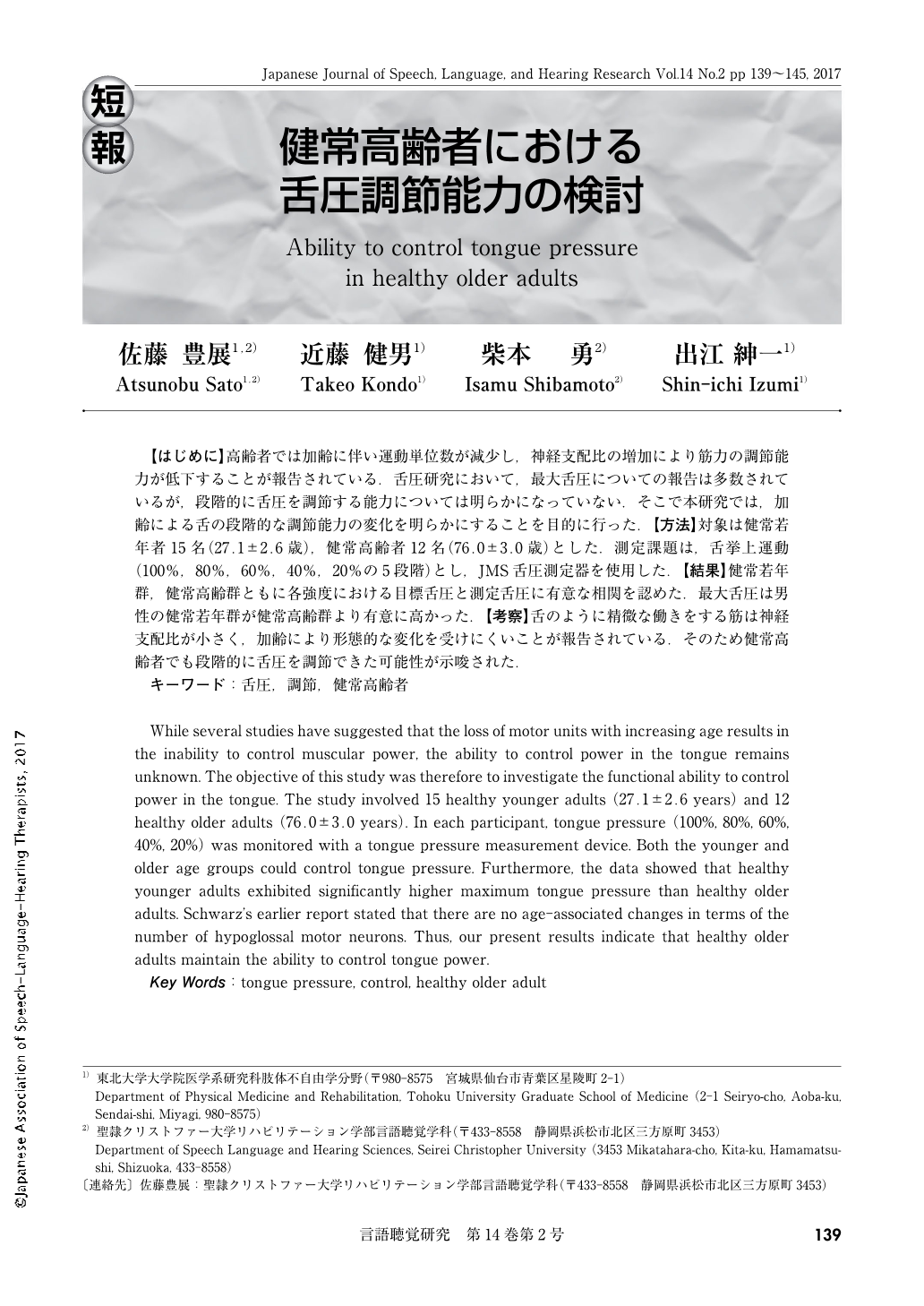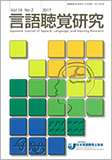Japanese
English
- 有料閲覧
- Abstract 文献概要
- 1ページ目 Look Inside
- 参考文献 Reference
【はじめに】高齢者では加齢に伴い運動単位数が減少し,神経支配比の増加により筋力の調節能力が低下することが報告されている.舌圧研究において,最大舌圧についての報告は多数されているが,段階的に舌圧を調節する能力については明らかになっていない.そこで本研究では,加齢による舌の段階的な調節能力の変化を明らかにすることを目的に行った.【方法】対象は健常若年者15名(27.1±2.6歳),健常高齢者12名(76.0±3.0歳)とした.測定課題は,舌挙上運動(100%,80%,60%,40%,20%の5段階)とし,JMS舌圧測定器を使用した.【結果】健常若年群,健常高齢群ともに各強度における目標舌圧と測定舌圧に有意な相関を認めた.最大舌圧は男性の健常若年群が健常高齢群より有意に高かった.【考察】舌のように精微な働きをする筋は神経支配比が小さく,加齢により形態的な変化を受けにくいことが報告されている.そのため健常高齢者でも段階的に舌圧を調節できた可能性が示唆された.
While several studies have suggested that the loss of motor units with increasing age results in the inability to control muscular power, the ability to control power in the tongue remains unknown. The objective of this study was therefore to investigate the functional ability to control power in the tongue. The study involved 15 healthy younger adults (27.1±2.6 years) and 12 healthy older adults (76.0±3.0 years). In each participant, tongue pressure (100%, 80%, 60%, 40%, 20%) was monitored with a tongue pressure measurement device. Both the younger and older age groups could control tongue pressure. Furthermore, the data showed that healthy younger adults exhibited significantly higher maximum tongue pressure than healthy older adults. Schwarz's earlier report stated that there are no age-associated changes in terms of the number of hypoglossal motor neurons. Thus, our present results indicate that healthy older adults maintain the ability to control tongue power.

Copyright © 2017, Japanese Association of Speech-Language-Hearing Therapists. All rights reserved.


